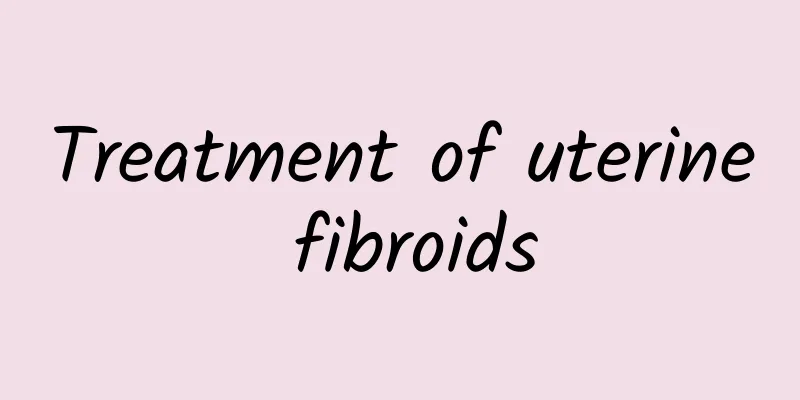How long does it take to have a normal menstrual period after hysteroscopic surgery for endometrial polyps?

|
After hysteroscopic surgery for endometrial polyps, it is normal for menstruation to resume within 4 to 8 weeks, but the specific time varies from person to person. If menstruation has not resumed more than 8 weeks after surgery, you should seek medical attention in time to rule out complications or other health problems. Physical condition during surgery and postoperative recovery, changes in hormone levels, and the presence of concomitant diseases can affect the resumption of menstruation. 1. Effect of surgery on the menstrual cycle Hysteroscopic surgery is a minimally invasive surgery, but it will cause a certain degree of trauma to the endometrium. Some endometrial tissue may be scraped off during the operation, which will cause the endometrium to take time to repair and regenerate after the operation, so menstruation may be temporarily delayed or disordered. If the operation is gentle, the endometrium will recover quickly and menstruation will resume earlier. If the operation is large or combined with other diseases, menstruation may take longer. 2 Changes in hormone levels Surgery is usually accompanied by changes in sex hormone levels in the body. For example, fluctuations in estrogen and progesterone levels may inhibit the repair of the endometrium or affect normal ovulation, resulting in a prolonged recovery of menstruation. Some patients may even experience temporary amenorrhea. In order to promote endometrial repair and hormone balance, the doctor may recommend taking estrogen or progesterone regulating drugs after surgery according to the situation. 3. Influence of other health factors Individual's physical condition, whether there are other gynecological diseases before surgery, such as uterine fibroids, polycystic ovary syndrome, and whether the follow-up after surgery is timely are all important factors that affect the time of menstrual recovery. If the patient has abnormal bleeding, severe abdominal pain or infection after surgery, it will further delay the repair of the endometrium, and in severe cases, it may also affect the subsequent menstrual cycle and regularity. To recover faster, here are some things to keep in mind: Keep the area clean after surgery to prevent infection. Follow your doctor's advice on recovery medications, such as anti-inflammatory or hormone-regulating drugs. Supplementing with iron, vitamin E and other nutrients that help repair the endometrium. Choose foods rich in high-quality protein and trace elements, such as fish, beans, green vegetables, etc. Avoid having sex too early. It is generally recommended to avoid sexual intercourse within 6-8 weeks after surgery. If your menstruation has not resumed more than 8 weeks after surgery or you have abnormal symptoms such as persistent abdominal pain or heavy bleeding, you need to see a doctor as soon as possible. The doctor may check the thickness of the endometrium, hormone levels, or rule out complications such as intrauterine adhesions before taking further treatment measures. It is normal to have menstruation 4-8 weeks after surgery, but the specific time varies from person to person. If there is any abnormality or the recovery time is too long, it is recommended to consult a professional doctor as soon as possible for evaluation and intervention to protect your uterine health and fertility. |
<<: Can I still have an abortion after three months?
>>: What are the effective drugs for treating uterine fibroids?
Recommend
What are the symptoms of premature ovarian failure
Premature ovarian failure is a complex disease wh...
What are the types of cervicitis?
The occurrence of cervicitis is related to sexual...
What is uterine fibroids? How to treat uterine fibroids
Uterine fibroids have become a very common uterin...
Expert answer: Will dysmenorrhea cause infertility?
"Will dysmenorrhea cause infertility?" ...
What are the clinical manifestations of uterine fibroids? Can uterine fibroids cause uterine bleeding?
As for the clinical manifestations of uterine fib...
Uterine fibroids may be associated with infertility
Uterine fibroids may be associated with infertili...
Can’t get rid of obesity? 52 intermittent fasting to lose weight with 4 more effective methods! Nutritionist Cheng Hanyu: 3 major features to help you get started faster
It's easy to indulge your appetite when you&#...
The key to preventing vaginitis is to understand the cause
The key to preventing vaginitis is to understand ...
How to prevent Bartholinitis
Many working friends have little time to pay atte...
What are the symptoms of uterine fibroids? Can uterine fibroids induce cervical cancer?
Uterine fibroids bring great pain to patients, an...
6 recipes for kelp that are low in calories and reduce edema
[Key Points]: Kelp can detoxify and prevent vario...
Causes of Endometriosis
When it comes to endometriosis, the first thing y...
Which hospital is good for treating endometrial tuberculosis?
In life, many female friends are troubled by endo...
What medicine should I take for endometritis and cervicitis
The treatment of endometritis and cervicitis usua...
The older you get, the easier it is to gain weight! Increase your basal metabolic rate with these 5 foods
Many people should be familiar with the term &quo...



![[Video version] G.E.M. reveals her lazy breakfast, replacing rice with oatmeal to lose 7 kg a year? Nutritionist says...](/upload/images/67dcfcd9c2c73.webp)





